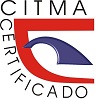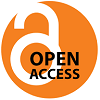System of activities for family education in bilingual communication
System of activities for family education in bilingual communication
Keywords:
deaf, family, communication, bilingual, activity systemAbstract
The influence of the family environment on the student and especially the importance of parents in their own acquisitions such as language, the formation of habits, attitudes, constitutes one of the most important factors in the life of the deaf student and their education. Both parents and the family in general contribute actively to its development, being them the special point for success. In the family of the deaf student there are communicative difficulties because the linguistic code for communication is not mastered. Family education for the development of bilingual communication in deaf students is a topic of great importance for all those involved in the educational process, the research is carried out in the Special School for deaf and hard of hearing students "René Vilches Rojas" from the recognition of the family as the first educational institution. It responds to the research line of the master's degree "The foundations of current Primary Education and the processes of educational inclusion. The objective of this article is to: propose a system of activities for family education that contributes to the development of bilingual communication in deaf students who are in first grade. The use of different theoretical, empirical and mathematical-statistical methods made it possible to determine the state of preparation of the family for the development of bilingual communication in deaf students and to determine their needs and potentialities. The application of the activities system demonstrated that by guiding and preparing families in terms of bilingual communication with their children, an active and leading participation of families in their children's education can be achieved.
Downloads
References
Alarcón Castillo, Y., García González, M. M., Gómez Cardoso, Á. L., & Castillo del Risco, Y. Y. (2022). Orientación a la familia del niño con necesidades educativas sensorial de tipo auditiva. Humanidades Medicas, (22) 12. Recuperado a partir de https://humanidadesmedicas.sld.cu/index.php/hm/article/view/2299
de Armas Ramírez, N., Marimón Carrazana, J. A., Guelmes, L. E., Rodríguez del Castillo, M. A., & Lorences González, J. (2005). Los resultados científicos como aportes de la investigación educativa. Universidad Pedagógica Félix Varela. Recuperado a partir de http://plataforma-educativa.gesta.cu/pluginfile.php?file=%2F2792%2Fmod_folder%2Fcontent%2F0%2FResultados%20cient%C3%ADficos.%20Aportes%20de%20la%20investigaci%C3%B3n.pdf&forcedownload=1
del Carmen Domínguez, D., Rodríguez Peñate, M., & Balmaseda Neyra, O. (2020). Sistema de actividades para la construcción del texto expositivo escrito: una experiencia en el primer año de la carrera en Español de la Universidad de Panamá. Varona. Revista Científico Metodológica, No. 71. http://scielo.sld.cu/scielo.php?script=sci_arttext&pid=S1992-82382020000200054
Hernández Núñez, D. G., & Rodríguez Fleitas, X. (2023). Atención educativa a las personas sordas. Retos y perspectivas. Varona. Revista Científico Metodológica, No. 76. http://scielo.sld.cu/scielo.php?script=sci_arttext&pid=S1992-82382023000100018
Lissi, M. R., Svartholm, K., & González, M. (2018). El Enfoque Bilingüe en la Educación de Sordos: sus implicancias para la enseñanza y aprendizaje de la lengua escrita. Estudios Pedagógicos, 38(2), 299–320. https://doi.org/10.4067/S0718-07052012000200019
Mendoza Crespo, S., Pérez Requesen, M., & Rodríguez García, R. M. (2021). Orientación familiar para el desarrollo del vocabulario activo en niños sordos. Jóven Educador, 38, (17). Recuperado a partir de http://revistas.ucpejv.edu.cu/index.php/rJEdu/article/view/1273
Pérez López, J., García Valdés, J. R., & Cuní González, B. J. (2017). Sistema de actividades para el desarrollo de la Educación Ambiental en la comunidad ¨El Jaguey¨. Revista Mendive. 15(2). Recuperado de http://scielo.sld.cu/scielo.php?script=sci_arttext&pid=S1815-76962017000200009
Rodríguez Fleitas, X., Valenciaga Pérez, C. A., Fresquet Pedroso, M. M., & Simón Valdéz, R. (2017). Sistematización de experiencias en la atención educativa a las personas sordas e hipoacúsicas. Revista Anales de la Academia de Ciencias de Cuba. 8 (1). https://revistaccuba.sld.cu/index.php/revacc/article/download/416/409
Rodríguez Fleitas, X., Fresquet Pedroso, M., Marzo Peña, A., & Baguer García, E. (2022). El enfoque bilingüe como condición para la educación inclusiva de las personas sordas. Revista De Investigaciones De La Universidad Le Cordon Bleu, 9(2), 70-81. https://doi.org/10.36955/RIULCB.2022v9n2.007
Rodríguez Rodríguez, B., Hernández Nodarse, T., Santos Fernández, D. Y., & Carrera Morales, M. (2016). Caracterización de las familias con hijos sordos para el desarrollo de la orientación educativa. Ra Ximhai, 12 (5), https://www.redalyc.org/pdf/461/46147584002.pdf
Valdés Cuervo, Á. A., & Urías Murrieta, M. (2011). Carencias de padres y madres acerca de la participación en la educación de sus hijos. Perfiles Educativos, 33 (134). http://www.scielo.org.mx/scielo.php?script=sci_arttext&pid=S0185-26982011000400007
Published
How to Cite
Issue
Section
License
Copyright (c) 2023 Diana Chile Viera, Lisandra Rosa Díaz Pérez, Heidy Boix García

This work is licensed under a Creative Commons Attribution 4.0 International License.
Horizonte Pedagógico es una revista Open Access, lo que quiere decir que todo su contenido es accesible libremente sin cargo para el lector o su institución. Los usuarios están autorizados a leer, descargar, copiar, distribuir, imprimir, buscar o enlazar a los textos completos de los artículos de esta revista sin permiso previo del editor o del autor, de acuerdo con la definición BOAI de open access. Los autores que publican en esta revista están de acuerdo con los siguientes términos: Los autores conservarán los “Derechos de autor” y garantizan a la revista el derecho de ser la primera publicación del trabajo. La revista se encuentra protegida bajo una licencia internacional de Creative Commons Attribution License Atribución 4.0 Internacional (CC BY NC 4.0), que permite a otros compartir (copiar y redistribuir el material en cualquier medio o formato) y adaptar (remezclar, transformar y construir a partir del material), para cualquier propósito, incluso comercialmente. Bajo las siguientes condiciones: atribución (usted debe dar crédito de manera adecuada, brindar un enlace a la licencia, e indicar si se han realizado cambios y no comercial — Usted no puede hacer uso del material con propósitos comerciales. Puede hacerlo en cualquier forma razonable, pero no de forma tal que sugiera que usted o su uso tienen el apoyo de la revista o el autor de la publicación.






















